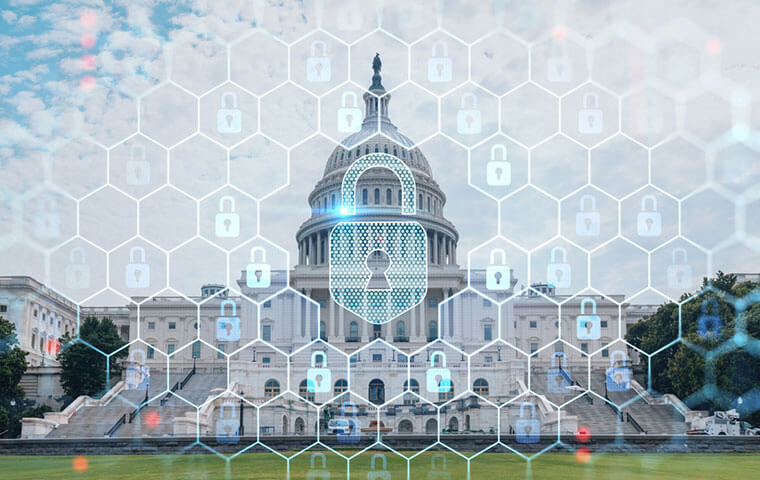 Hill Dems: Agencies are responsible for defending their networks, regardless of whether cybersecurity is their primary mission. Image: VideoFlow/Shutterstock.com
By: FEDweek Staff
Hill Dems: Agencies are responsible for defending their networks, regardless of whether cybersecurity is their primary mission. Image: VideoFlow/Shutterstock.com
By: FEDweek StaffDemocrats on the House Homeland Security Committee have asked OPM for information regarding how two of its main federal personnel policies—a general hiring freeze and the “deferred resignation” offer—are affecting cybersecurity positions, given that “the federal government has struggled to recruit, hire, and retain qualified cybersecurity workers for many years.”
Their letter noted that the hiring freeze includes an exemption for positions related to “national security,” neither that order nor any later guidance has spelled out how agencies are to define which positions qualify. For example, it says, DoD has continued hiring for civilian positions but “the Cybersecurity and Infrastructure Security Agency, which is the operational lead for federal cybersecurity and the national coordinator for critical infrastructure security and resilience, does not have a single open position listed on the USA Jobs website.”
In addition, individual agencies “are responsible for defending their agency networks, regardless of whether cybersecurity is their primary mission, and any delay in filling vacant cybersecurity positions at Federal agencies risks severe national security implications . . . A hiring freeze that precludes Federal agencies from filling cybersecurity positions risks the security of federal networks and may prevent sector risk management agencies from fulfilling their obligations to help defend critical infrastructure,” it says.
It said that the deferred resignation program similarly has an exception for national security positions “but similarly failed to define which positions fall under the exemption. While we understand that many DHS components have been exempted from this offer, there is a risk that incentives offered by OPM could reduce the number of cybersecurity professionals across the federal government.”
The letter asked for information about the impact of both initiatives, including regarding programs where federal employment is a condition of scholarship support such as the CyberCorps: Scholarship for Service program.
Senate Eyes Vote to Pay Federal Employees Working Unpaid
Series of Bills Offered to Address Shutdown’s Impact on Employees
Public Starting to Feel Impact of Shutdown, Survey Shows
OPM Details Coverage Changes, Plan Dropouts for FEHB/PSHB in 2026
Does My FEHB/PSHB Plan Stack Up? Here’s How to Tell
2025 TSP Rollercoaster and the G Fund Merry-go-Round
See also,
TSP Takes Step toward Upcoming In-Plan Roth Conversions
5 Steps to Protect Your Federal Job During the Shutdown
Over 30K TSP Accounts Have Crossed the Million Mark in 2025

